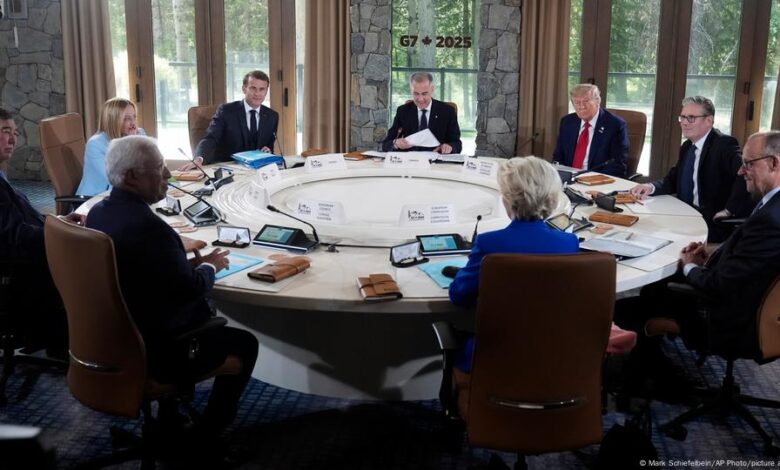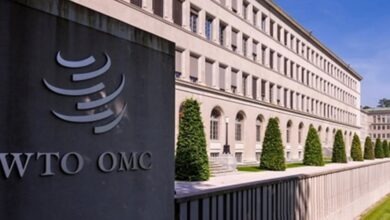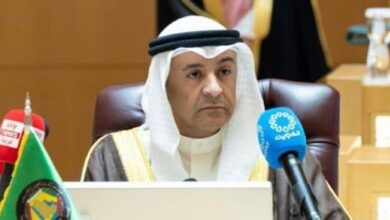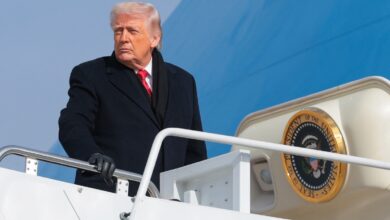
The G7 leaders have reaffirmed their commitment to peace and stability in the region, stressing the importance of protecting civilians, and emphasized that the group remains clear in its position that “Iran can never have a nuclear weapon.”
“We urge that the resolution of the Iranian crisis leads to a broader de-escalation of hostilities in the Middle East, including a ceasefire in Gaza,” according to the Kuwait News Agency.
The G7 also noted its readiness to coordinate efforts to preserve energy market stability, stating: “We will remain vigilant to the implications for international energy markets and stand ready to coordinate, including with like-minded partners, to safeguard market stability.”
The participants in the summit included US President Donald Trump, French President Emmanuel Macron, European Council President Antonio Costa, European Commission President Ursula von der Leyen, Japanese Prime Minister Shigeru Ishiba, Italian Prime Minister Giorgia Meloni, Canadian Prime Minister Mark Carney, British Prime Minister Keir Starmer, and German Chancellor Friedrich Merz.
Meanwhile, according to Reuters, the joint communiqué, released shortly after U.S. President Donald Trump abruptly left the summit, before scheduled meetings with Ukrainian President Volodymyr Zelensky and Mexican President Claudia Sheinbaum — sparked speculation about U.S. military involvement in the Israeli-Iranian conflict since Trump offered little clarity, saying only that he was returning to Washington for “big stuff” but denied the move was related to a ceasefire effort.
Earlier in the day, Trump warned Iranians to evacuate Tehran, a remark that fueled speculation that U.S. forces might back Israeli strikes — claims denied by American officials. Despite this, U.S. Defense Secretary Pete Hegseth confirmed the deployment of additional capabilities to the Middle East to enhance America’s “defensive posture.”
Trump’s press secretary, Karoline Leavitt, insisted the president had “a great day” at the summit, pointing to a new trade deal between the U.S. and the U.K., but she linked his early departure to “what’s going on in the Middle East.”
As Trump boarded Air Force One, he took to Truth Social, publicly rebuking French President Emmanuel Macron for suggesting the U.S. was working on a ceasefire.
“Wrong! He has no idea why I am now on my way to Washington, but it certainly has nothing to do with a Cease Fire,” Trump wrote. “Much bigger than that… Stay Tuned!”
Meanwhile, G7 leaders, including Macron, acknowledged Trump’s early exit and expressed hope the U.S. could play a constructive role. “If the United States can achieve a ceasefire, that’s a very good thing,” said Macron.
Events on the ground escalated shortly after Trump’s departure. Iranian media reported explosions and anti-aircraft activity in Tehran, while Israel intensified its attacks, including a strike on Iran’s state broadcaster that forced a live presenter to flee. In Tel Aviv, air raid sirens sounded again as Iranian missiles targeted the city.
Trump’s pinned post on Truth Social underscored his hardline stance on Iran’s nuclear ambitions: “Simply stated, IRAN CAN NOT HAVE A NUCLEAR WEAPON. I said it over and over again!”












